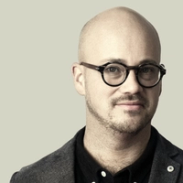 Tim McDonnell/Semafor Tim McDonnell/SemaforClimate tech startups at COP28 say they’re in a race against time to scale up. Outside the confines of the summit’s diplomatic “blue zone” is the sprawling “green zone,” essentially the world’s biggest climate-tech trade show. In the center is the “startup village,” home to dozens of cutting-edge companies hoping to attract the attention and money of the financial institutions and big corporate emitters in neighboring pavilions. Here you’ll find models of electric motorcycles and airplanes, mushroom-based fake sausages encased in plexiglass, alternative-chemistry EV battery packs, carbon-sucking concrete, and soy sauce made from algae fed on emissions captured from a coal-fired power plant. The main thing on the minds of most entrepreneurs here is “compressing the financing timeline,” said Val Miftakhov, CEO of ZeroAvia, which is building small airplanes that run on a combination of electricity and hydrogen. Even as more large financial institutions and corporations become willing to invest in scaling up innovative climate tech, accessing that capital requires a lot of piecemeal, hit-and-miss pitching and long due diligence processes, repeated with every financier, that “just don’t align with the timeline of the energy transition,” he said. In conversations at COP28, Miftakhov found more banks showing an interest in getting involved with early-stage climate tech venture funding, with an eye to sticking with promising companies all the way from their early stages to full commercialization. That should speed up the process and be a big profit opportunity for those willing to gamble on a vision of the future, he said. High-emitting corporations, too, are getting more frantic about purchasing decarbonization tech, said Amane Kimura, CEO of Algal Bio, of the carbon-capture soy sauce. “Climate tech is in a new phase,” he said. “The phase of setting long-term dreams is over. Now our clients are better educated and their questions are more detailed. They want numbers, they want near-term solutions because they’re under so much pressure to decarbonize.” |













